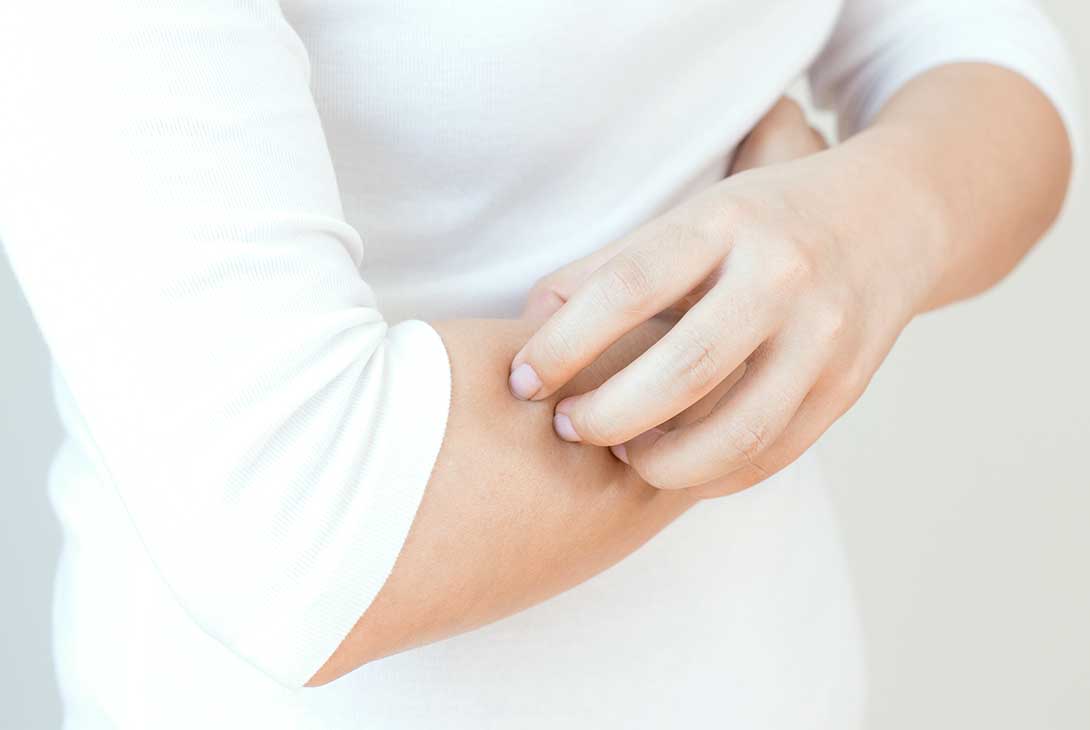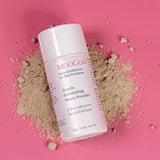
What Makes Your Sensitive Skin Worse?
If there’s anyone that knows about the suckiness of sensitive skin, soothing flare-ups and ditching the itch, it’s us. We’ve been making products for skin problems and GOO-ing strong for over 15 years, helping thousands clear up their pesky, flaky, red, sore, dry skin.
Whilst our products speak for themselves (check out what the Herd has to say here), we’ve also picked up a few tips along the way on how to keep skin calm, clear and comforted its when it's overreacting.
Reign In Reactions with these 7 skin-saving steps
Keep in mind that skin conditions are highly personal, and what works for someone else may not work for you. So, you’ll need to do a bit of experimenting to find a routine that works for you and your skin.

1. Keep your cool
Warmer temperatures bring blood flow closer to the surface and stimulate the sweat glands, which can trigger or exaggerate flare-ups, itching and discomfort on the skin. If you can, try to keep your indoor spaces a bit cooler, around 18 to 21°C is ideal.
Tip: Staying warm in winter has its challenges, but one of the easiest things you can do to save your skin is to throw on some extra layers instead of cranking up the heat. Each layer of clothing keeps you insulated by trapping body heat so you can keep it cool and feel the cold. You'll save a bit on the power bill too.
 2. Hold the hot showers
2. Hold the hot showers
We all love a hot, steamy shower in the morning or after a long, hard day, but did you know that hot water can actually dry out the skin and also damage its surface? This all leads to drier, itchier and more irritable skin - as if you needed more of that. Maybe that’s whyskin feels so good after a cool ocean dip.
Tip: Keep the showers on the cooler side. It doesn't have to be cold, but if it's causing the mirror to fog up it's probably too hot. Cooler showers are also good for circulation. Google "Ice Man Wim Hof" to find out why cold water is super cool (pun intended).

3. Flick overpowering fragrances
Any products that include strong scents are likely to irritate your skin due to the harsh and strong chemicals used to create most fragrances. If it smells artificial, it probably is and might be best to steer clear.
We used to use essentials oils to scent our products, but many people react to them, even in small amounts so we took them out of most of our formulas. While essential oils are great, they aren't so great for sensitive skin, so keep an eye out for these when selecting products.
But we do like making products that have a nice smell, but because we make products suitable for reaction-prone skin, we helped to develop a special kind of non-irritating fragrant oil. This is how we have lovely-smelling products without the skin reactions.

4. Clean the slate
The most overlooked part of any skincare routine is often the cleanse. Skin needs to be clean, but using harsh detergents can strip skin of its natural oils, keeping it in a constantly irritated state. This is why skin problems seem to stick around or keep coming back uninvited.
We recommend cleansing skin with a natural, gentle wash that gets the job done without the unnecessary trauma. Synthetic sulfates like SLS do clean, but they can also do more damage than good, leaving skin dry, itchy and screaming for salvation. Keeping skin clean doesn't have to be a damaging ordeal
For anyone affected by skin conditions such as eczema, it's important to maintain a healthy skin barrier function to help prevent irritation from environmental triggers and reduce the occurrence of flare-ups.

5. Make time to moisturise
Keeping skin hydrated is more important than you may think. When skin is dry, it's much easier for germs and irritants to pass through the skin barrier. This can cause dermatitis to develop, sensitivities to start and get those flare-ups to start firing again.
Be sure to moisturise skin from head to hooves within 3 minutes after bathing or showering to 'lock' moisture in. Moisturising after bathing, or even after just washing your hands, helps to form a barrier on the skin, preventing those pesky germs from entering the body which can cause dermatitis or an annoying reaction to occur.

6. Don't overdo the exfoliation
If you suffer from dry skin, eczema, or other skin issues, exfoliating to remove dead skin cells may seem like the best thing to do, but it’s very easy to overdo it. Over exfoliating can cause you not only to remove the dead skin cells but your new ones too. This can then cause your skin to become sore, red, and even more irritated.
Tip: Exfoliate no more than twice a week and avoid products with sharp particles or microplastics as they can scratch the skin surface. Opt for something more gentle and suitable for all skin types.

7. Go face-free
Usually, makeup removal goes hand-in-hand with your bedtime routine. Wearing makeup for a long time can irritate and clog the skin as it's being covered with a layer of product all day. Powders, foundation, blushes, bronzers, highlighters, and concealers; the skin puts up with a lot. That's why we created our very own MooGoo Makeup.
Tip: Instead of taking your makeup off before bed, try taking it off after you get home or go one day a week without any makeup at all. It's even an Instagram trend right now - celebrity selfies without makeup.
We get lots of questions from people looking for help with managing their skin problems. Got a question for us? Don't be a shy cow! Get in touch with us
